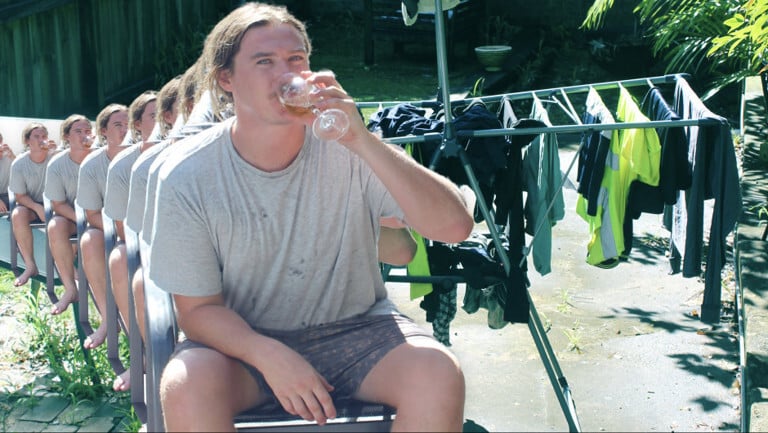Daniel Muggleton is no stranger to comedy. Having been in the business for more than 10 years, his observational comedic style was a hit with the audience at the Goodwill Club of The Rechabite for the 2025 Perth Comedy Festival.
His show You May be White, I May Be Crazy covered an array of topics from the controversial Welcome to Country acknowledgements to living in London, disputes with his wife and fatherhood. Which given the title of his show, it was not what I was expecting.
One of my favourite parts of the show were his footnote disclaimers. He would say something that may be a little contentious, for example, he said he would raise his newborn son to be gay because society has become too woke and now it’s too difficult to teach him how a ‘real man’ is ought to behave. After having said that he would sit at the edge of stage stating his newborn son is not actually gay. Then he would standup again and continue with the show.


His crack at politicians was also gold. I think it’s fair to say that most Australians are quite familiar with our Prime Minister mentioning his ‘special friendship’ with the President of the United States yet Muggleton likened the friendship to knowing a girl you like but she doesn’t even know you exist.
As Australians, we love to poke fun of ourselves so when he mentioned about the difficulty some immigrants have in trying fit in with the Australian culture and wanting to make an effort, the crowd roared with laughter when he said that’s the whole problem. Making an effort, when as Australians, we prefer not to. That is what he did best, his critique of Australian culture.
There was so much Muggleton covered in his show which a lot of the material resonated with the audience last night. He doesn’t stick with one thing too long. You can also tell he does his research in the town he’s performing in because he was quite knowledgeable about Perth traffic in comparison to his hometown of Sydney.
If he’s ever in town and you need a good laugh, Muggleton will not disappoint.
For information on upcoming Daniel Muggleton tour dates, please visit https://danielmuggleton.com.au/.












